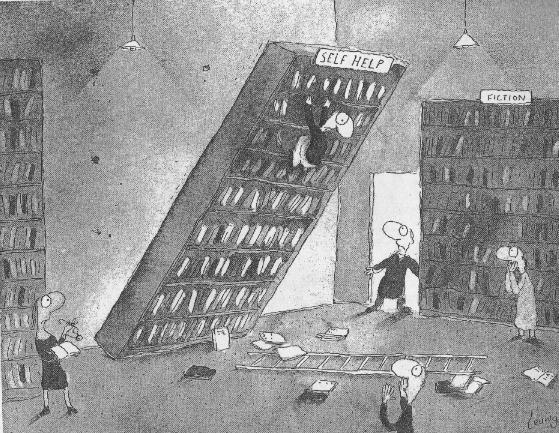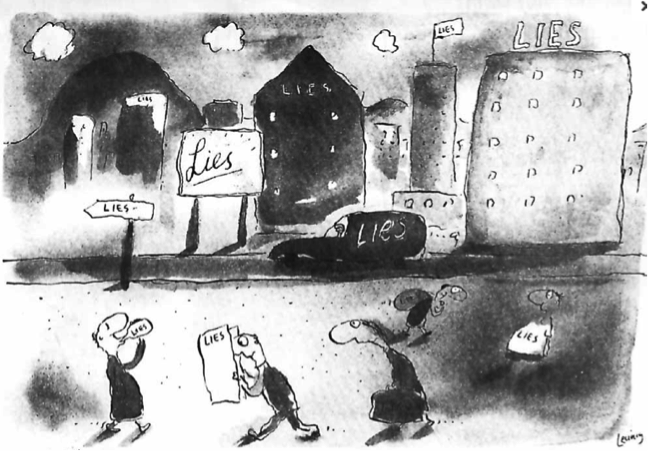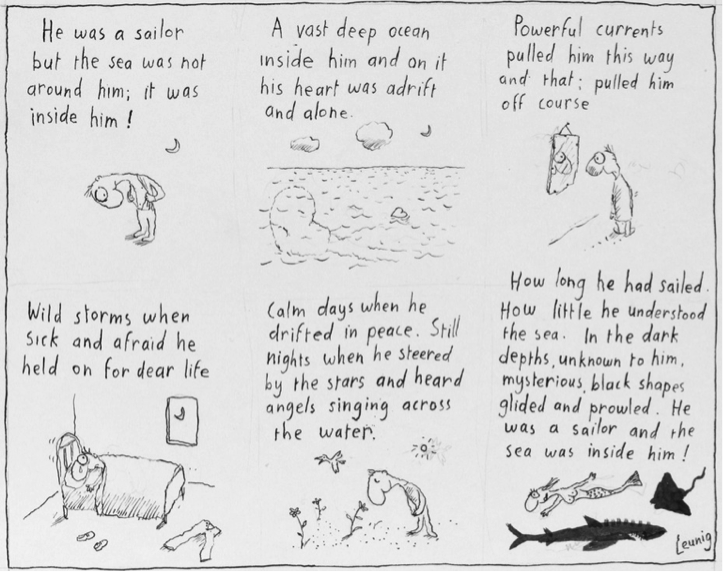Appreciating Michael Leunig
I’ve always loved Michael Leunig’s cartoons. As a child, there were always collections of his like The Penguin Leunig (1974) and The Bedtime Leunig (1981) floating around the house. There was so much to enjoy about his work. The angry, deluded, bewildered and disillusioned characters fumbling through life in his cartoons were hilarious.
Before coming across Jeremy’s work, I had absolutely no idea that much of Leunig’s cartoons contained such profound honesty about the human condition. I just found Leunig’s wonderful sense of irreverence, irony and absurdity hugely entertaining, like Self Help (The Age, 1992). His hapless wide-eyed characters coming unstuck always made me laugh.

I was about twenty years old (that’s a fair while ago now) when my good mate James West first introduced me to Jeremy’s ideas. Not being aware of my own alienated condition, at first they seemed a bit abstract, almost intellectual, to me. But with Westy’s enthusiastic encouragement, I persevered and I soon found Jeremy’s explanations to be incredibly accountable, and at the most profound level. Once I got my head around how they worked, I suddenly had the means to make sense of and decipher all sorts of writing, artwork, experiences and countless other things that I’d never really thought much about before. It was genuine revelation, the genuine revelation. Among the many things that I came to appreciate was how much honesty there was in so many of Leunig’s cartoons. To my great surprise, I found a little treasure trove of truth lying about the house!
Cartoons like Lies (The Travelling Leunig, 1990) are simple but brilliant illustrations of how virtually everything you look at these days is now completely full of shit or alienation, as Jeremy would describe it.

Other Leunig cartoons like He was a Sailor (The Age, 13 April 1991) were marvellous penetrating depictions and affirmation of the unresolved subconscious dilemma that all resigned humans struggle with. Leunig acknowledges how truly lost and alone we are inside ourselves and how beholden we are to subconscious forces we are barely aware of. And the bewildered expressions on the ‘sailor’s’ face are priceless!

In 1999, the National Trust of Australia declared Leunig an Australian Living Treasure. Jeremy describes Leunig as having ‘produced innumerable brilliantly honest, insightful and therapeutically revealing cartoons about all aspects of our species’ troubled condition.’ (Freedom , Part 2.4: The Propositions) and he discusses the significance of three of Leunig’s ‘masterpieces’ in Freedom Book 1 (Part 2:5: The propositions; Part 3:7: The depth of our anger) in some detail. If you haven’t read those sections, can I suggest you do. I can’t recommend them highly enough.
I still love Leunig’s cartoons as much as ever and, save for the politically motivated pieces which seem to have infected some of his work over the last decade or so, for me they remain like little streaks of sunlight poking through a dark and stormy sky. Other than Jeremy, there are so few people in the world today who are able to offer any real honesty or insight into the human condition.
If you’re interested in Leunig, a lot of his cartoons can now be found on the internet with simple image searches. There is also a selection at his website: www.leunig.com.au. If you prefer hard copies, you can buy second hand copies of most of his published collections on ebay.




Please wait while the comments load...
Comments